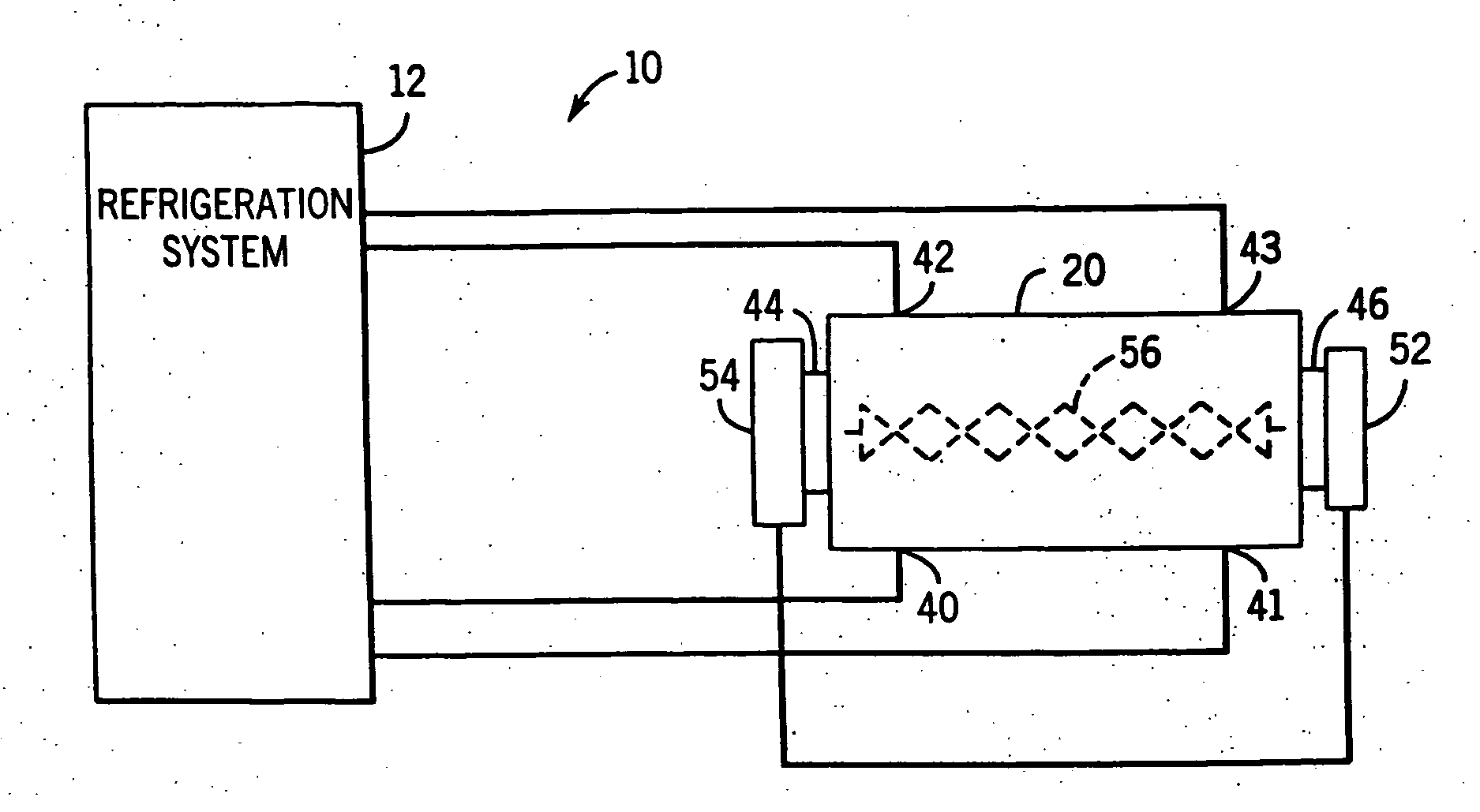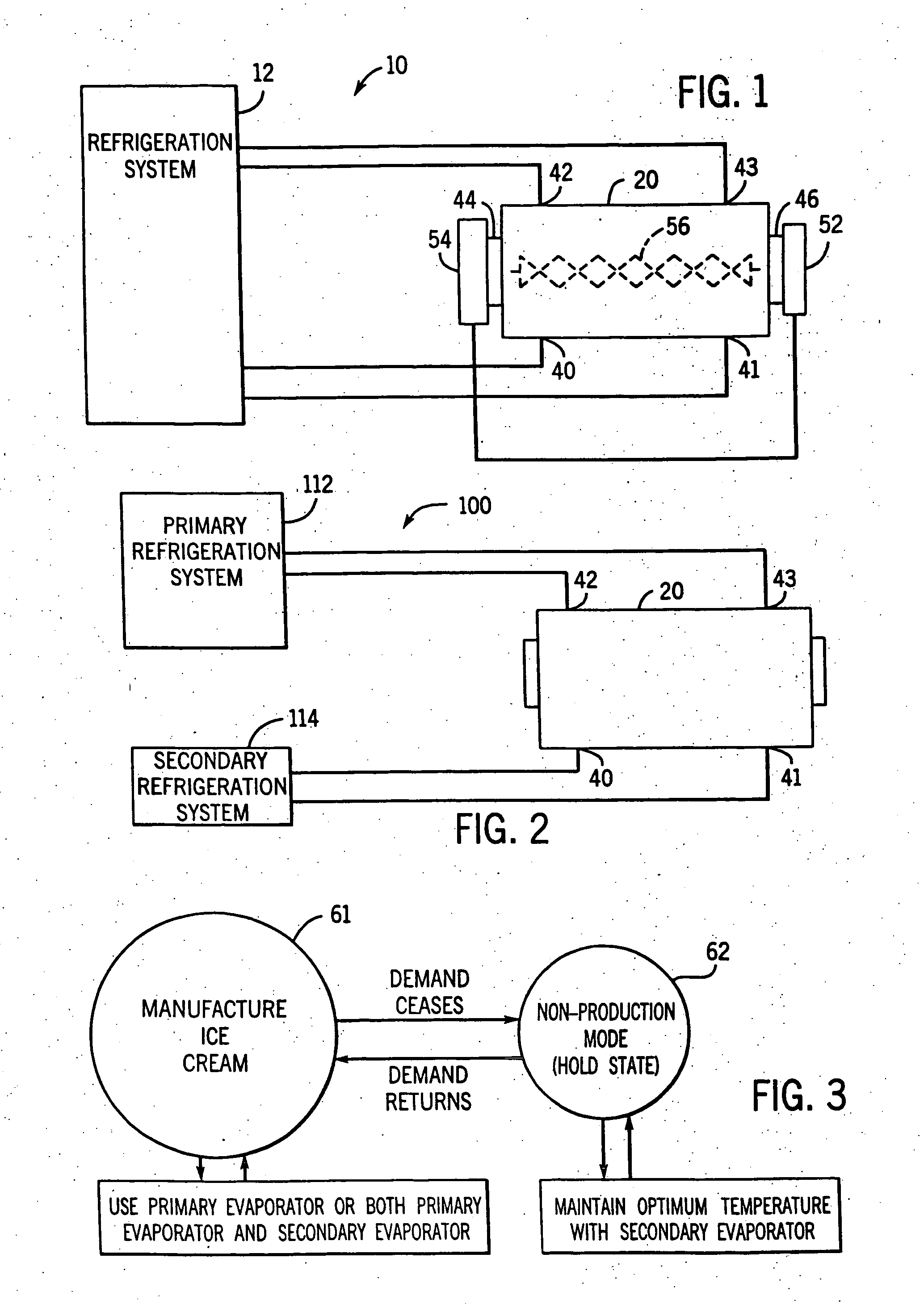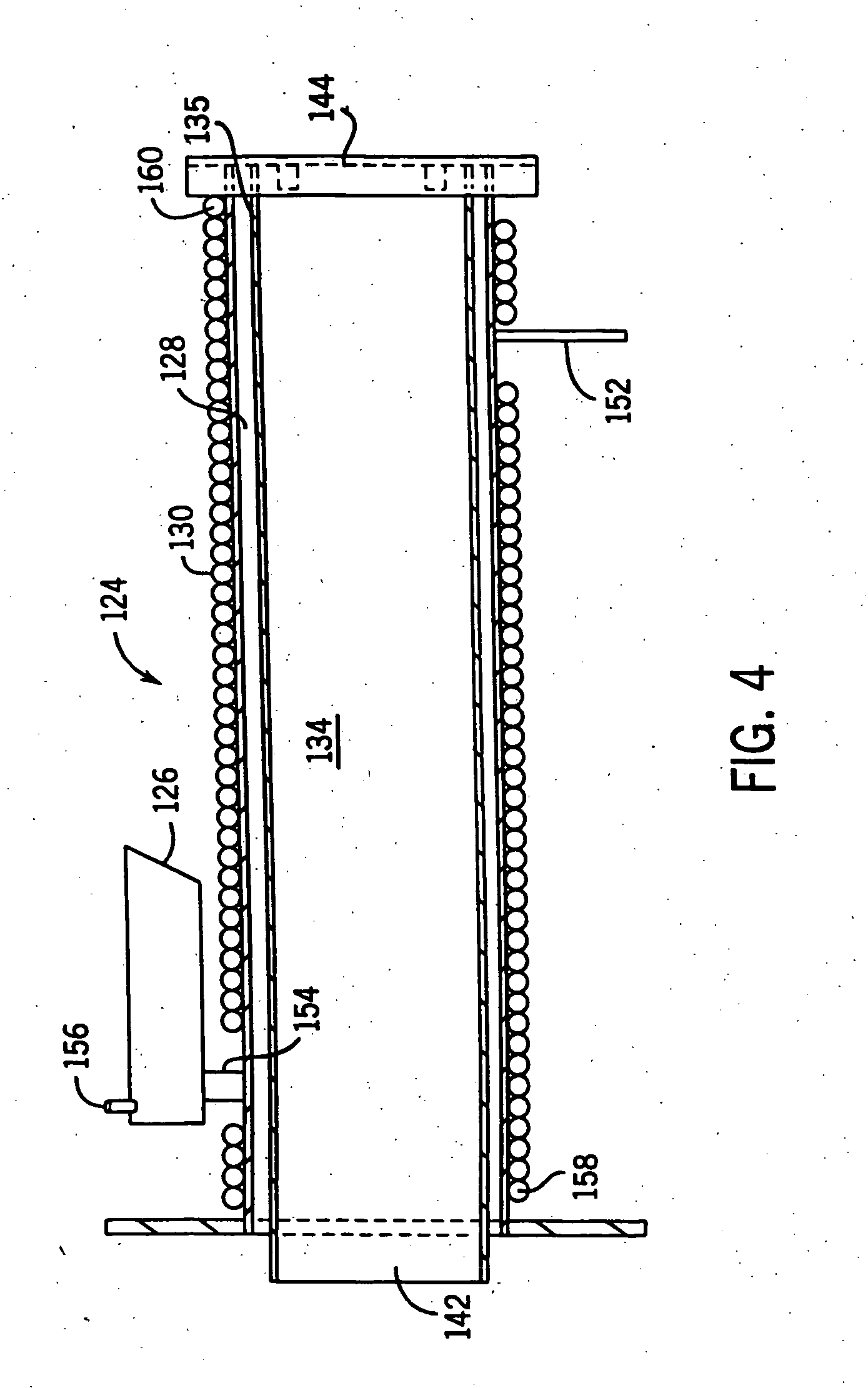Ice cream machine including a controlled input to the freezing chamber
a control input and ice cream machine technology, applied in the field of refrigeration or cooling systems, can solve the problems of difficult to maintain the temperature of the barrel at a constant level, block the travel of ice cream, adversely affect the texture of the ice cream,
- Summary
- Abstract
- Description
- Claims
- Application Information
AI Technical Summary
Benefits of technology
Problems solved by technology
Method used
Image
Examples
Embodiment Construction
[0027] A soft serve, frozen custard, or ice cream machine or making system 10 is diagrammatically shown in FIG. 1. Ice cream machine 10 includes a cooling or refrigeration system 12 and an evaporator 20. Refrigeration system 12 can include any number of components for providing and processing liquid refrigerant to and receiving and processing a vapor refrigerant from evaporator 20. For example only, system 12 can include an expansion device, such as, a valve, a shut-off device, such as, a solenoid valve, a sight glass, a filter, a condenser, a compressor, an accumulator, and a valve. Although not limited to such systems, system 12 can utilize any of the components or systems described in U.S. Pat. Nos. 6,119,472, 6,101,834, 5,755,106, and application Ser. No. 09 / 639,062.
[0028] Evaporator 20 can be a system including a number of components on a single integral unit. For example only, evaporator 20 can include a cylindrical cooling tank, a secondary evaporator, and an auxiliary tank....
PUM
 Login to View More
Login to View More Abstract
Description
Claims
Application Information
 Login to View More
Login to View More - R&D
- Intellectual Property
- Life Sciences
- Materials
- Tech Scout
- Unparalleled Data Quality
- Higher Quality Content
- 60% Fewer Hallucinations
Browse by: Latest US Patents, China's latest patents, Technical Efficacy Thesaurus, Application Domain, Technology Topic, Popular Technical Reports.
© 2025 PatSnap. All rights reserved.Legal|Privacy policy|Modern Slavery Act Transparency Statement|Sitemap|About US| Contact US: help@patsnap.com



